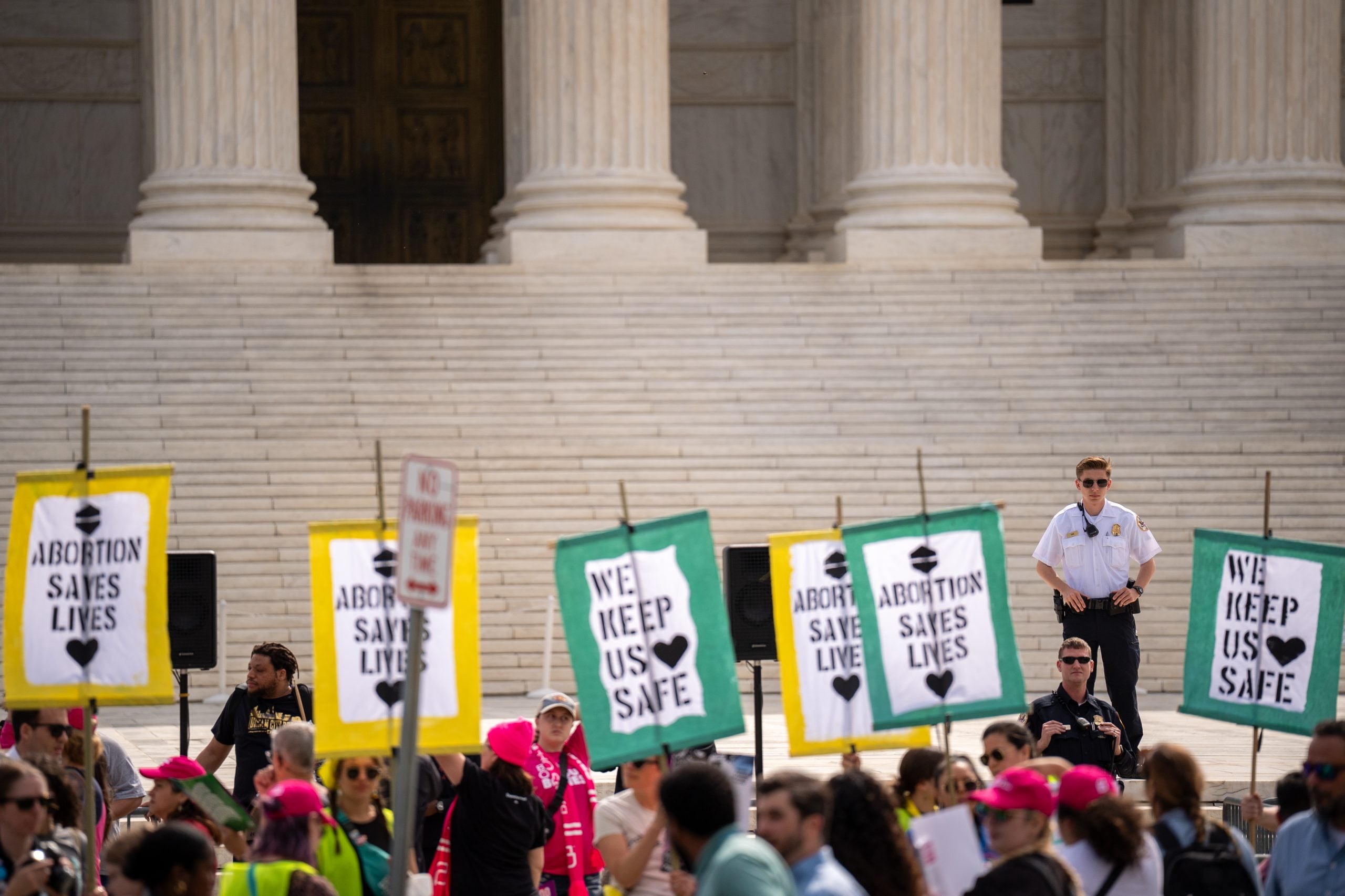Will Doctors No Longer Be Able To Use Abortions During Emergency Medical Situations?
Netflix Is Developing SCOOBY-DOO Live-Action Series
April 30, 2024KRAVEN THE HUNTER Movie Delayed a Third Time to December 2024
May 1, 2024Will Doctors No Longer Be Able To Use Abortions During Emergency Medical Situations?
https://www.essence.com/news/supreme-court-idaho-abortions-emergency-care/
 Andrew Harnik / Staff / Getty Images By Rayna Reid Rayford ·Updated April 30, 2024
Andrew Harnik / Staff / Getty Images By Rayna Reid Rayford ·Updated April 30, 2024
For the second time in one month, an abortion case has gone before the Supreme Court. A key issue in the case revolves around whether or not doctors in Idaho are able to both comply with the state’s abortion ban and the federal law requiring them to deliver emergency care for patients. The justices are deciding if doctors will be able to use abortions during emergency situations.
In the case at hand, the Biden administration filed a lawsuit after Roe v. Wade was overturned and the Defense of Life Act became law in 2022. The Idaho law states that “anyone who performs an abortion is subject to criminal penalties, including up to five years in prison. Health care professionals found to have violated the law can lose their professional licenses.”
The second abortion case before the high court this term revolves around access to the medication abortion pill, mifepristone.
In Idaho, the near total ban only allows abortions when a pregnant mother’s life needs to be saved, “but not to prevent her health from deteriorating.”
But under federal law, the Emergency Medical Treatment and Labor Act (EMTALA), “when a patient goes to an emergency room with an urgent medical issue, hospitals must either provide treatment to stabilize the patient or transfer the patient to a medical facility that can, regardless of the patient’s ability to pay. It says that if a state law conflicts with the federal law, the federal law takes precedence.”
The justices are determining if the Idaho law is in violation of EMTALA, essentially deciding if doctors will be able to use abortions during emergency situations.
During oral arguments, Joshua Turner, Idaho’s attorney faced a barrage of questions around “whether the exception can also apply to a situation in which a woman has complications that pose a substantial health risk but not imminent death,” NBC News reports.
Justice Sonia Sotomayor questioned if Idaho’s ban prevented doctors from performing an abortion in instances “where a woman where a woman would otherwise lose an organ or have serious medical complications.” Turner answered in the affirmative, saying “Yes, Idaho law does say that abortions in that case aren’t allowed.”
But when conservative Justice Samuel A. Alito Jr., chimed in with the assertion that these were all just hypotheticals situations, Justice Elena Kagan countered with the fact that “the hospital with the most advanced emergency room services in Idaho had needed to transfer six women to other states for emergency abortions so far this year.”
Experts are predicting that the ramifications of this case on reproductive care have the ability to go beyond Idaho into other states.
“People are going to die,” cautions, Pregnancy Justice’s legal director Karen Thompson. “They are going to be bleeding out in hospital rooms. They’re going to be dying from sepsis because doctors are not going to be able to make the choices that they need to make to give people the care that will save their lives in these emergency situations.”
TOPICS: abortion Supreme Court
The post Will Doctors No Longer Be Able To Use Abortions During Emergency Medical Situations? appeared first on Essence.
